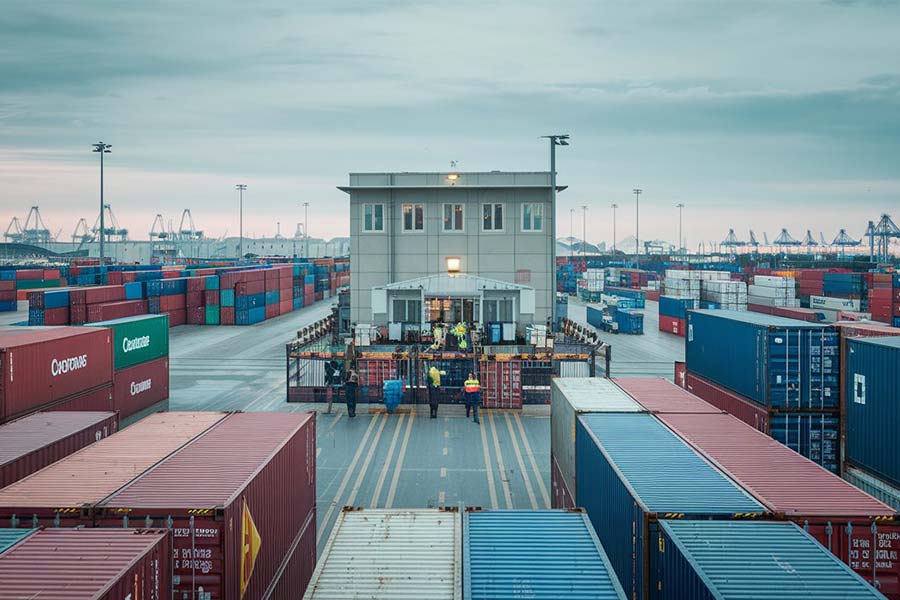
I. Tonnage tax: Foreign tradeshipping"toll fee"
Every time I see foreign vessels entering our country's ports, it's like welcoming guests from afar. According to the "Vessel Tonnage Tax Law," these "guests" are required to pay a special "hospitality fee"—the vessel tonnage tax. As a "seasoned sailor" with 20 years of experience in foreign trade, I have witnessed the entire evolution of this tax from manual processing to full digitalization.
The essence of tonnage taxIt is a compensation for the use of our country's ports and navigation aids, calculated based on the vessel's net tonnage. Just like parking fees vary according to vehicle size, a 10,000-ton ship and a 1,000-ton boat naturally have different "ticket prices." Special reminder: Special vessels such as tugboats and yachts are charged based on engine power—don't use the wrong "meter"!
II. Nine Tax-Exempt Scenarios: These "Guests" Are Eligible for Exemption
The tax law specifies nine categories of "VIP guests" eligible for tax exemptions. Based on my professional experience, here are the key points:
- Small amount exemption:Change" under 50 yuan can be directly waived.
- Empty new vessel:The first entry of "empty vehicles" purchased overseas is exempt from inspection.
- Temporary berthing: Vessels that do not load/unload cargo within 24 hours after license expiration
- Special operation vessels: "Sick ships" undergoing repair or isolation may apply for tax exemption.
Last year, a client imported a yacht worth hundreds of millions, and by preparing the vessel ownership certificate in advance, successfully enjoyed the second tax exemption policy. Remember:Tax exemption is not automatic, it requires active declaration and supporting documents.
III. Three-step electronic declaration: Handle tonnage tax via mobile
Now tonnage tax declaration is as convenient as ordering takeout, but pay attention to these operational details:
Material preparation stage
- Ship's "ID Card": Certificate of Nationality or Custody Receipt
- Tonnage Certificate: Equivalent to a vehicle's "driving license."
- Power Certification: "Engine Qualification Certificate" for Tugboats/Yachts
Online filing key points
When filling in the "Internet + Customs" platform,Transport tool numberJust like a tracking number, entering it incorrectly may cause the ship to "get lost." Once, a novice mistook the letter "O" in the English ship name for the number "0," leading to system recognition failure. Suggestion:
- Customs district code can be selected via dropdown menu with spacebar
- Port entry date must be precise to the hour to avoid cross-day disputes
- Vessel power must use kilowatts uniformly, not horsepower
Payment considerations
There are two common "pitfalls" in electronic payments:
- Tripartite AgreementMust sign contract 1 working day in advance
- When payment fails, first check if the IC card is properly inserted
IV. Special case handling: What to do about over/underpayment
Just like supermarkets may miscalculate, tonnage tax can also have errors:
Tax supplement scenarios
When Customs discovers underpayment, they will issue a Tax Supplement Notice. Special attention:
- Unintentional underpayment: Can be supplemented within 1 year
- Violation underpayment: 3-year retroactive period + 0.05% daily late fee
Tax refund process
Overpaid taxes are like being overcharged for a purchase, and we have a 3-year "claim period":
- When Customs discovers overpayment: Must notify within 24 hours
- Self-discovery by enterprises: Apply online through the "Customs Affairs Contact System".
- Processing time: Generally completed within 30 working days
V. Veteran captains experience sharing
Sharing three practical tips:
- Tonnage tax licenseCarry it like a passport as it needs to be inspected when exiting the country
- In case of system failure, immediately take screenshots and call 12360
- Regularly check whether the ships tonnage certificate is within its validity period
I remember in 2019, a certain vessel had its tonnage certificate expired, causing the originally eligible preferential tax rate to revert to the ordinary rate, resulting in over a hundred thousand yuan in additional tax payments. These "tuition fees" could have been completely avoided.
Tonage tax is like the "traffic rules" of the shipping industry—understanding it not only helps avoid penalties but also identifies the optimal route. Currently, 90% of related procedures can be handled online, yet entrusting professional matters to professionals remains a wise choice. The next time your vessel enters port, may this guide assist you in clearing customs smoothly!


 Follow Customer Service WeChat
Follow Customer Service WeChat